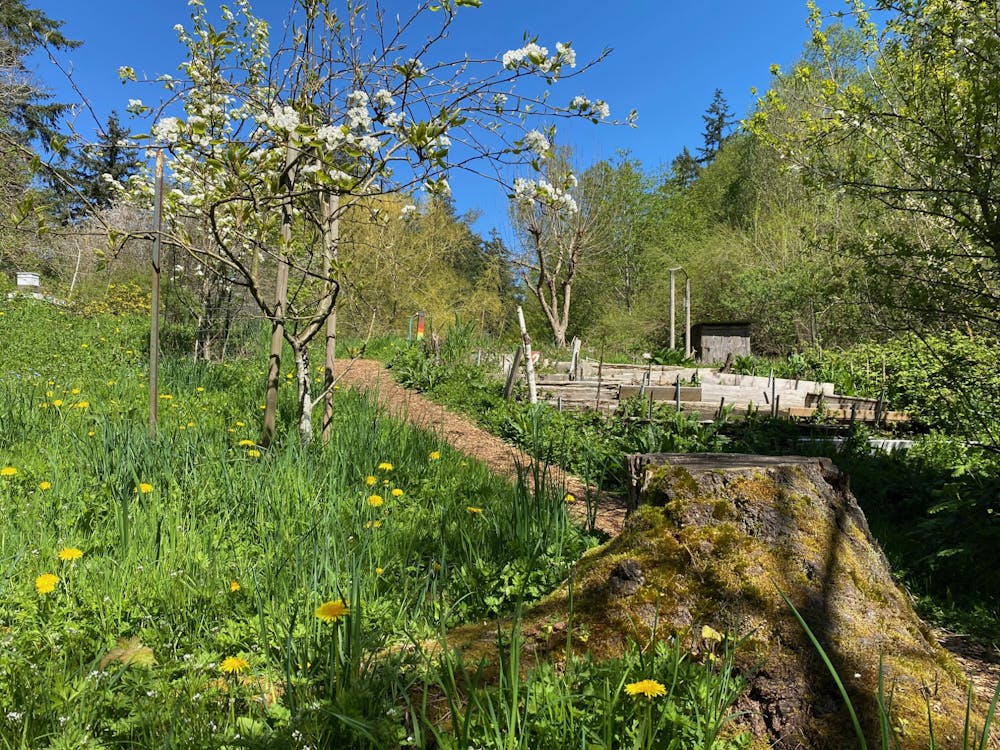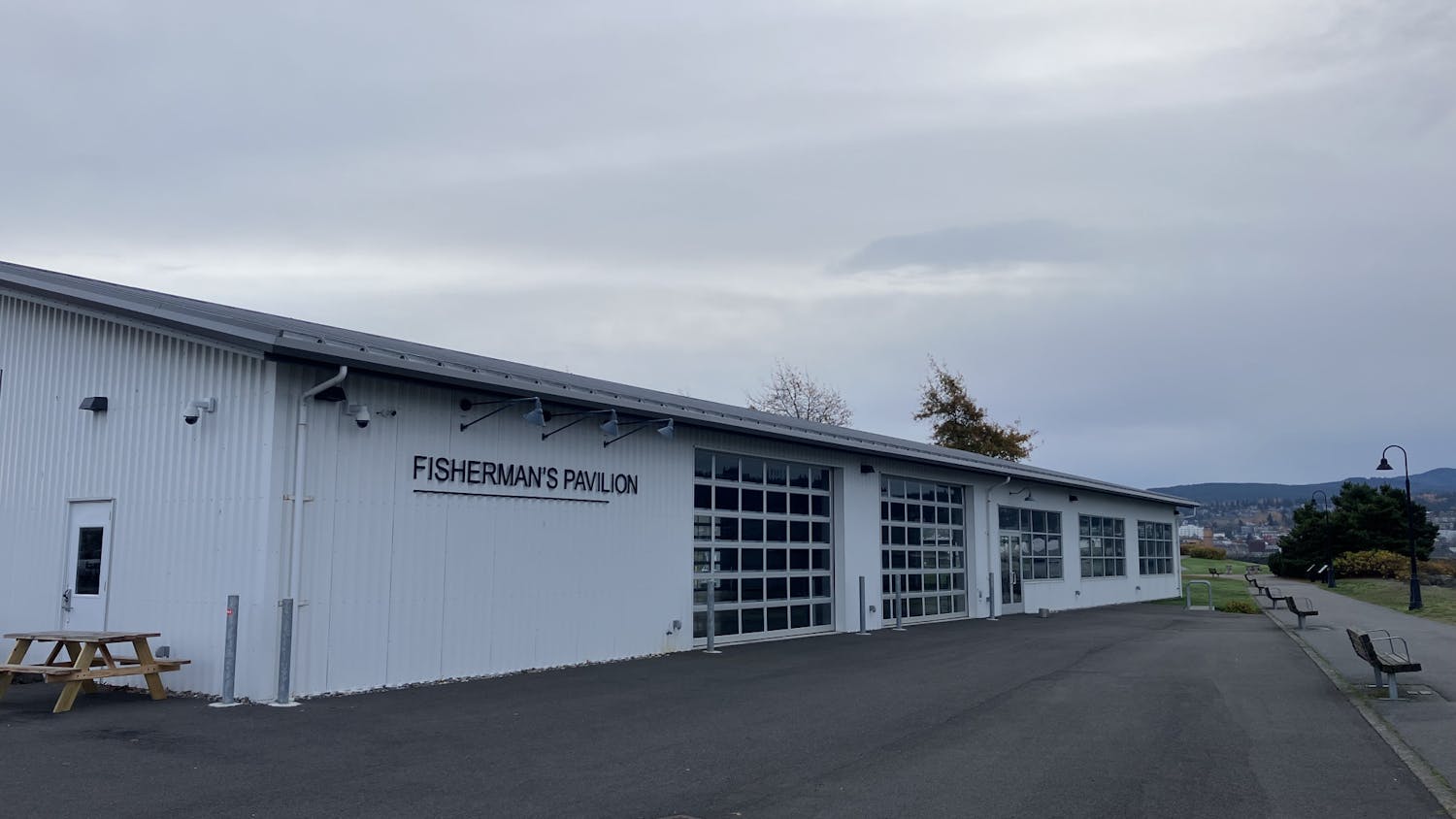Spring sunshine is here after a long, cold winter, but Bellingham residents may still be feeling glum. Some are tackling these feelings with gardening.
Seasonal Affective Disorder, also known as SAD, is “a type of depression characterized by a recurrent seasonal pattern,” according to the National Institute of Mental Health. A milder case of this is the “winter blues” where you may feel down or unlike your usual self during fall and winter.
While people usually experience these feelings during cooler months, they may linger on into the spring. Gardening is one way you can combat these emotions.
AJ Armstrong, a third-year student at Western Washington University, started tending to plants in 2020 after feeling depressed during the COVID-19 pandemic.
“My dad saw a basil plant at Trader Joe's and he had read somewhere that taking care of something can make you happier,” Armstrong said. “He put it on the ledge in my room and it forced me to get out of bed and take care of it and make sure that it didn't die.”
Armstrong’s obsession with plants has flourished over the last two years, and now they own over 50 types of plants. Armstrong said the dopamine rush of seeing new growth on a plant gives them a lot of joy.
“It's like gambling,” Armstrong said. “Knowing the next leaf could be right around the corner makes you not want to give up on a plant.”
Gardening and connecting with nature can help improve one’s mental health, but why?
Kaela Koepke, a mental health and nature therapist, explained the practice of ecotherapy as “connecting with nature for healing and growth.”
Ecotherapy doesn’t have to be practiced in a professional setting. You can practice it on your own by taking time to learn about what’s growing in your backyard, around your neighborhood, or on your school's campus.
“The heart of ecotherapy is viewing nature as a sentient being, so that you build a relationship with nature,” Koepke said. “So you're not going to nature to take something from it as a resource, but instead, building a relationship that is innately healing just to be in nature.”
Koepke said she believes the most important thing while building a relationship with nature is listening and taking time to hear what the trees and plants have to say.
“There's really a magic that happens when you involve nature in a therapy session,” Koepke said. “Nature really becomes another therapist in the room, and people receive messages, insights or clarity. It's a really special thing.”
Clayton Pierce, a Western professor who facilitates classes in the Outback Farm, added that building a non-transactional relationship with nature is better for the natural world and your own well-being.
“Providing the sustenance for a plant has this effect on us that gives us joy, that gives us a sense of being in service of nature, as opposed to thinking of nature as something out there, an object or something I want to take from,” Pierce said. “It's something I'm part of and I'm nurturing and in service of.”
Learning to nourish and care for plants can give someone a sense of purpose and something to look forward to. Some start this process on their own and unexpectedly build new connections along the way.
“I think it's a powerful way to build community and collaboration with other people, but also with more than humans, which is really important,” Pierce said. “Those are the plants, the animals and the soil. Intentionally building those relationships, I think, is really important and I value that a lot.”
Terri Kempton, the farm manager for the Outback, relayed a similar message.
“This part of being human is being one species among many, and it's our natural inclination to find that almost camaraderie, partnership or community with more than human species around us,” Kempton said.
Kempton said embracing our “collective ancestry” while gardening plays a role in helping people connect with one another, the Earth and ourselves.
“People find that to be a grounding, internally centering activity to engage with, having your hands in the dirt, or to be holding seeds, or helping to harvest. It tends to feel very natural for a lot of people,” Kempton said.
Storm Rosenquist, a second-year Western student, has been gardening with their family since they were young.
“I love digging in the dirt,” Rosenquist said. “I've always been interested in plants. My sister was really into house plants, and she taught me a lot about them, so now I also have some that I take care of.”
Though they’ve gone through ups and downs with their mental health, Rosenquist said tending to plants is always a pleasing, calming experience.
“When I'm focusing on a task or doing something physical, especially with plants and gardening, I know how much more relaxed and how much more clear in my mind I feel afterwards, and just so connected to my body,” said Rosenquist.
Sophia Raymond (she/her) is a city life reporter for The Front this quarter. She is a second-year news/editorial journalism major. When she’s not reporting, you can find her crafting, cooking and searching for new music to listen to. You can reach her at sophiaraymond.thefront@gmail.com.






